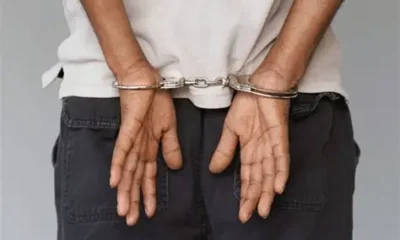Published
8 months agoon
By
Adubianews
In a bold move to tackle illegal mining—locally known as galamsey—Ghana is set to roll out strict regulations on excavator imports and usage.
President John Dramani Mahama announced the initiative during the Global Mining Summit in Accra on June 2, 2025, stating that Ghana can no longer allow heavy-duty equipment to slip through the cracks and enable environmental destruction.
What’s Changing
1. Permit Required Before Import
Under the new policy, individuals and companies must secure government permits before
importing excavators into Ghana. This measure aims to limit the uncontrolled influx of these
machines, which are commonly used in unauthorized mining operations.
2. Tracking System Nationwide
Every excavator—new or existing—will be registered and tagged with a tracking device. This
will allow the government to monitor movement and usage to ensure the machines are not
diverted to illegal mining sites.
3. Legislative Backing
The government has submitted L.I. 2462 to Parliament, seeking to remove presidential discretion in approving mining in forest reserves. The proposed law reinforces a national stance on preserving protected lands.
Illegal mining has caused irreversible damage to Ghana’s environment—destroying forests, polluting rivers, and compromising farmland. The unchecked use of excavators has played a central role in this crisis.
In 2024 alone, Ghana imported excavators worth GH¢6.2 billion, making them the country’s third-largest import item. A disturbing number of these were reportedly funneled into galamsey operations.
Environmental groups and civil society organizations have welcomed the policy. Ken Ashigbey of the Media Coalition Against Illegal Mining emphasized the importance of tracking excavators across all regions to truly root out illegal activity.
If implemented effectively, this regulation could reshape how mining is done in Ghana. The government’s next challenge will be ensuring enforcement—especially at borders, ports, and regional districts where oversight has been historically weak.


NDC Supporter Blames Galamsey for Helicopter Crash, Issues Harsh Warning


Tarkwa Court Jails Illegal Miner 16 Months for Attempted Arson and Unlawful Entry


Chairman Wontumi Granted GH¢50 Million Bail by EOCO


Chairman Wontumi Hospitalized After Hours of Interrogation at EOCO


Cedi Appreciation Cuts Ghana’s National Debt by Nearly GH₵150 Billion – President Mahama


Tensions Rise as EOCO Arrests NPP’s Chairman Wontumi After CID Interrogation


Chairman Wontumi Granted Bail Amid Illegal Mining Allegations


Ghana’s “No Fees Stress” Initiative: Over 41,000 First-Year Students Registered for Academic Fee Reimbursement


President Mahama Inaugurates 37-Member National Development Planning Commission

























